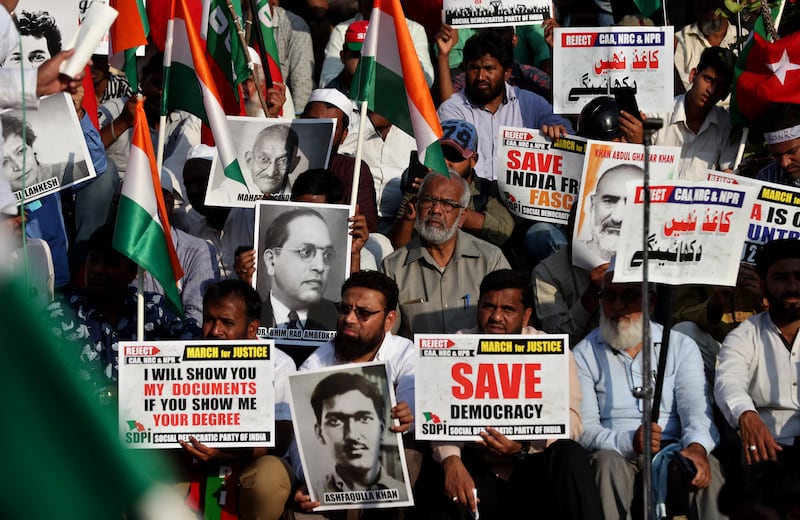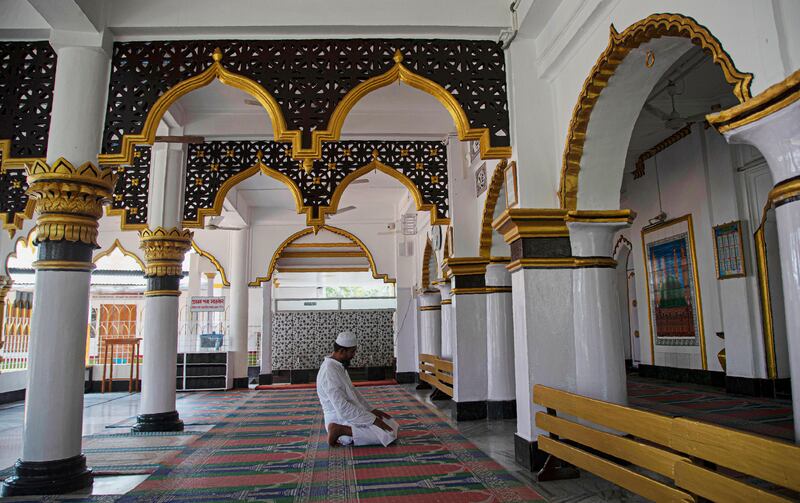SALT LAKE CITY — Some long-term religious freedom violators embraced reform in 2019, but faith-based persecution remains a significant problem around the world, according to the U.S. Commission on International Religious Freedom, which released its latest annual report on Tuesday.
Countries like Sudan and Uzbekistan have responded well to outreach from American leaders and repealed or adjusted problematic policies. Elsewhere, government officials have welcomed opportunities to discuss the needs of vulnerable faith communities, although they have not yet offered tangible relief, said Gayle Manchin, vice chairwoman of the commission, during a Tuesday morning press call.
“It’s not every year that we can report this many advancements,” she said.
However, people of faith continue to suffer in many areas of the world, despite the commission’s efforts — and the entire U.S. government’s work — to support them.
During the past year, countries like North Korea, China and India adopted harsher laws and singled out more citizens for mistreatment because of what they believe.
“While we are encouraged by positive developments we saw during 2019, religious freedom conditions continue to decline in some other countries,” Manchin said.
Commissioners worry that the ongoing COVID-19 crisis could accelerate this decline and undo progress made on religious freedom in other countries. The pandemic is a reminder that the work of human rights advocates is never really done, Manchin said.
“For countries that want to persecute and harass in certain ways, this becomes a perfect opportunity for them,” she said.

Policy recommendations
The U.S. Commission on International Religious Freedom is an independent, bipartisan organization that supports the work of the U.S. government. Each year, commissioners meet with leaders from other countries, take part in fact-finding trips and investigate reports of faith-based abuse in order to highlight significant religious freedom violations and make policy recommendations.
The purpose of the commission’s annual report is to provide a summary of key religious freedom-related developments during the past calendar year. The report includes profiles of the worst religious persecutors across the globe, as well as the countries that come close to deserving that description.
“It focuses on the worst countries in the world for religious freedom, but also highlights improvements in these places where appropriate,” said Tony Perkins, the commission’s chairman.
The 2020 annual report features 29 countries, 14 of which have been singled out as “countries of particular concern” due to systematic, ongoing and egregious religious freedom violations. Burma, China, Eritrea, India, Iran, Nigeria, North Korea, Pakistan, Russia, Saudi Arabia, Syria, Tajikistan, Turkmenistan and Vietnam all made the list.
Commissioners called special attention to India during the press call, noting that this is the first time it has been labeled a country of particular concern since 2004. The most notable development there in 2019 was the passage of new citizenship laws that could lead to nearly 100 million Muslims being forced out of the country, Perkins said.
“A majority of commissioners believe this country is trending in a very negative direction,” he said.
North Korea, which has been in the news due to the rumored death of leader Kim Jong Un, is also a key concern for religious freedom advocates, said Gary Bauer, who serves on the commission. It’s unlikely that conditions there will improve even if someone else comes to power.
“We believe that tens of thousands of the hundreds of thousands prisoners of conscience in North Korea are Christian,” he said.
The 15 additional countries profiled in the report are places where two of the three types of religious freedom abuses — systematic, ongoing or egregious — are present. As Manchin noted, sometimes inclusion on this second list is a good thing because it means a country has shown significant improvement from years past.
Sudan, Uzbekistan, Bahrain and the Central African Republic “have made progress,” she said. For example, Sudan repealed a law forcing citizens to comply with the government’s interpretation of Islamic teachings and Uzbekistan ceased police raids on religious gatherings.
Commissioners encourage officials at the State Department to take the annual report into consideration when they produce their own list of countries of particular concern and special watch list for other religious freedom violators.
Currently, the commission and State Department agree on nine of the 14 countries of particular concern, Perkins said, noting that government officials take additional factors under consideration when they make their designations.
The commission’s “focus is strictly on religious freedom,” he said. It doesn’t look at other factors, such as national security or trade agreements, that influence the State Department’s decisions.
Moving forward
Although the State Department does not always heed the commission’s advice, commissioners don’t doubt that the Trump administration takes religious persecution seriously. Throughout 2019, government officials spoke out in support of persecuted faith communities and called on leaders of other countries to do the same, Manchin said.
“In July, the State Department convened the second ministerial to advance religious freedom,” she said. “In September, President (Donald) Trump dedicated an additional $25 million to programs protecting religious freedom and religious sites.”
Additionally, the administration heeded calls to appoint an expert on international religious freedom to the National Security Council staff.
The commission “for years had urged successive administrations to establish and fill this position,” Manchin said.
Despite these important developments, there is still much work to be done, commissioners said. Policymakers could do more to sanction countries that consistently disregard human rights and offer more support to victims of religious persecution.
“We urge the U.S. government to give safe haven to victims of religious persecution ... by raising the refugee resettlement ceiling,” Manchin said.
In the year ahead, commissioners will advocate for this change and other policy proposals as they continue to work on behalf of vulnerable religious communities around the world. The coronavirus pandemic will also be a key area of focus for the next few months, since public health emergencies can fuel religious freedom violations, said Johnnie Moore, who serves on the commission.
“Authoritarian regimes are defaulting to old behaviors and violating human rights in order to protect health. And in those countries making significant progress (on religious freedom), progress seems to be slowing down,” he said.
With the commission’s help, U.S. policymakers can offer meaningful support to people of faith around the world during this difficult moment and in the future, said Rep. Jamie Raskin, D-Maryland, during the Tuesday press event.
The annual report “is a critical tool for those of us in Congress to figure out what’s going on and how best to apply our energy to (promote) the values of religious freedom and tolerance,” he said.


 alt=Kelsey Dallas
alt=Kelsey Dallas